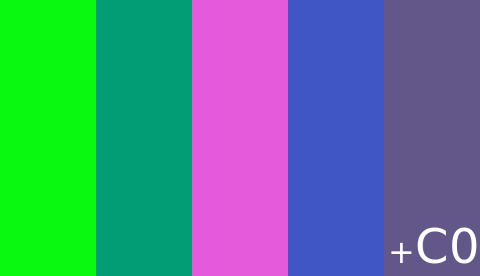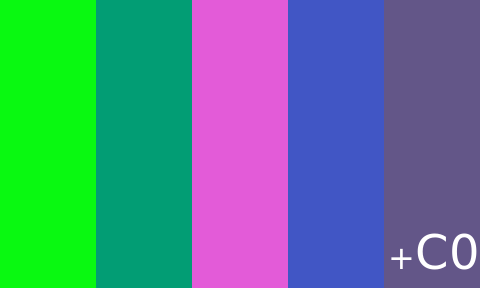The Number That’s Illegal to Share


There are lots of numbers out there — an infinite amount, in fact. We can talk about almost all of them without fear of getting in trouble — 0, 1, π, 24601, 8675309, etc. — but a few, well, those are problematic. Using them could result with you on the wrong end of a lawsuit, and potentially in prison.
Really.
Let’s start with the law in play. In 1998, the United States Congress passed the Digital Millennium Copyright Act, or DMCA. The media world was changing with the advent and then the popularity of the Internet; it was becoming extraordinarily easy for anyone – even consumers in the comfort of their own homes — to copy books, music, movies, and more. Those copies were, in theory at least, copyright violations, although ones which were very hard to police. The DMCA aimed to address the changes that digital media caused copyright holders.
The DMCA is a long, complicated set of laws, but the one important for our purposes is here, summed up by Wikipedia thusly: “it criminalizes production and dissemination of technology, devices, or services intended to circumvent measures (commonly known as digital rights management or DRM) that control access to copyrighted works.” Opponents of the law lampooned it as overbroad, causing all sorts of weird problems; for example claimed that a pair of scissors was a “device” which could get around copyright protection in hopes of showing how silly the DMCA was. That’s not quite right — the DMCA, for reasons not worth addressing here, does not outlaw scissors, and few believe otherwise. But a number — 0s, 1s, 2s, and so on, in a particular order — hat could be a problem.
Take, for example, a common form of digital rights management — DRM — which works by encrypting the content on, say, DVDs. The bits of information on the DVD are scrambled; the DVD player has a “key” which is used to unscramble the DVD content. The key, ultimately, is just a string of numbers — a very long string of numbers, sure, but just a number after all. (If you want a much more technical rundown, click here.) And in 2007, someone found a number which mattered: 13,256,278,887,989,457,651,018,865,901,401,704,640.
That number is really long but it’s easy to shorten — in hexadecimal, it’s 09 F9 11 02 9D 74 E3 5B D8 41 56 C5 63 56 88 C0. That’s the key used to decrypt a certain type of DVDs called HD-DVD, or at least, was one used during the spring of 2007. But someone who shouldn’t have had the key somehow discovered it. (How it was discovered is questionable and for our purposes, unimportant.) What is important: a user of the website Digg, then a community-driven tech news aggregator, published that hexadecimal string and explained what it was for. The Digg community loved it — but the copyright holders didn’t. In fact, they thought the mere act of sharing the number was illegal in and of itself, and they told Digg to take it down or face the consequences. As TechCrunch reported shortly thereafter, they may have been right: “the Digital Millennium Copyright Act states that you cannot publish public keys or parts of keys to copy protected content without previous permission and ’09-f9-11-02-9d-74-e3-5b-d8-41-56-c5-63-56-88-c0′ is clearly a key and is clearly a violation of the DMCA.” So, Digg complied, removing the offending post and banning the person who posted it.
So, why can I share this number without fear? In short, because the Digg community — and the rest of the tech-focused Internet shortly thereafter — freaked out, turning the number into something newsworthy, and something everyone seemed to report thereafter. Claims of censorship overtook the entire Digg website; Gizmodo summarized it with the headline “Digg Riot in Full Effect Over Pulled HD-DVD Key Story.” Users were printing the code on t-shirts and finding other ways to share the “09 F9” string as it became later known. The image above is a great example; it became the unofficial flag of the movement, as each band of color represents a part of the hexadecimal string (09 F9 11, for example, gives you a bright, light green).
As the 2007 firestorm spread, “09 F9” spread with it, rendering it obsolete — what good is a password if tens of thousands of unauthorized people have it? As a result, the DVD industry stopped using it, making the number (probably) safe for me to publish today.
But there are other numbers out there which are still quite secret and quite hard to reverse engineer — numbers that are used, for example, to make sure that your bank’s website is only being used by those authorized to do so. (Here’s a good video on the subject.) Sharing those numbers may violate the DMCA. You won’t come across one accidentally — most of them are now thousands or tens of thousands of digits. But if you have one, for some reason? Mention it at your own risk.
Bonus fact: In 2008, legendary comedy troupe Monty Python tried something completely different than using copyright as a sword against infringers. YouTube, at the time (and still today), offered a way for copyright holders to identify and remove infringing videos. But instead of availing themselves of that tool, the Monty Python team created their own YouTube channel and uploaded a video about their unique way of addressing copyright issues. You can watch the video here, but to jump to the punchline: they identified the most popular bootlegged clips and uploaded free, high-quality ones on their own channel. In exchange, they asked fans to buy the DVDs if they liked the free, short clips. According to the Guardian, the gamble worked — DVD sales shot up 16,000% afterward.
From the Archives: The Loneliest Number: That awful feeling when all of your friends and neighbors win the lottery, but you don’t.
Related: Monty Python DVDs.
